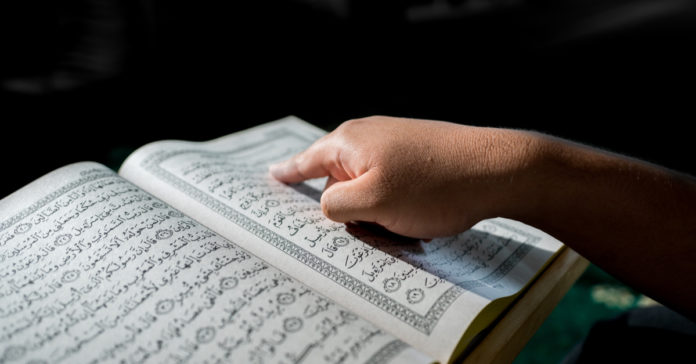Maulana Sikander Iqbal says that Quranic and Prophetic teachings on same-sex relations are clear no matter how modern thinkers try to twist Islam.
In recent decades, heterodox “thinkers” have emerged, proposing “reforms” to the Islamic position on same-sex relations. They argue that the Quranic message has been misunderstood by the erudite scholars of the past, or that perhaps the language itself is malleable enough to accommodate same-sex relationships alongside normative heterosexual ones.
However, Allah has promised the protection of His Word (15:9), and there are many ways to demonstrate the intellectual shallowness of those who wish to change the transcendent ethic. But perhaps the most pertinent is how Allah has inter-textually protected the meaning of the Quran.
Thus, a primary source in Islam to acquire the meaning of the Quran is the verses of the Quran themselves. More commonly known as “tafsīr ul Qur’ān bil Qur’ān,” this inter-textual hermeneutical approach is recognised by all the erudite exegetes of the past and is epistemically the strongest form of interpretation in the science of tafsir.
Muftī Shaf’ī sāḥib (r.a) clarified in Ma’āriful Qur’ān:
“For instance, there appears that sentence of prayer in Surah al-Fātiḥa: ‘Guide us in the straight path – the path of those on whom You have bestowed Your Grace.’ Now it is not clear here who are those whom Allāh Almighty has blessed. But, in another verse, they have been identified very clearly where it is said: ‘So, these are the people whom Allāh Almighty has blessed, being the prophets, their true followers, the martyrs and the righteous.’ (4:69) Therefore, when respected commentators explain a verse, they first check to see if a tafsīr of this verse is already in the noble Qur’ān. If it is present in the Qu’rān, they elect to go by it as their first choice.”
Considering the above-outlined principle, let us now observe how Allāh protected Islām’s moral view on same-sex relations. Allah has described the attributes of the Prophet (pbuh) in the following way:
Subscribe to our newsletter and stay updated on the latest news and updates from around the Muslim world!
“Those who follow the Messenger, the Ummī (unlettered) Prophet whom they find written with them in the Torah and the Injīl (The gospels), and who bids them the Fair and forbids the Unfair, and makes pure things permissible for them and makes UNLAWFUL FOR THEM IMPURE Things (الۡخَبٰۤـئِثَ), and relieves them of their burden, and of the shackles that were upon them. So, those who believe in him and strengthen him, and help him and follow the light sent down with him, those are the ones who are successful.” (7:157)
The Arabic word used for “impure things” is الۡخَبٰۤـئِثَ. Now, the question is: What type of impure things has the Prophet (pbuh) made unlawful? As the verse is inconclusive, we follow the aforementioned inter-textual principle and search the Quran. We come across a passage in Surah Anbiyah, wherein the same word has been utilised to describe a nation that came before us.
Allāh says: “As for Lūṭ (a.s), We gave him wisdom and knowledge, and We delivered him from the town that used to do (الۡخَبٰۤـئِثَ) foul deeds. Indeed, they were the people of evil, the sinners.” (21:74)
What were the foul deeds they were habituated to?
Their misdeeds are registered in several verses, and the most significant of them, singled out repeatedly alongside their mention, is the sin of sodomy. The words of the verses mentioning this sin could not be more explicit: “Do you approach men with sexual desire instead of women.”
Although same-sex behaviour was not the only offence the people of Luṭ committed, it was nonetheless their emblematic transgression. It is the sin most ascribed to them in the Quran and is mentioned repeatedly.
In contrast, their remaining crimes, like highway robbery and practising evil in their gatherings, are mentioned only once. Imām Ālūsī (r.a), explaining why the plural (َالۡخَبٰۤـئِثَ) is used instead of the singular (َخَبِيثَة), said: “It is possible that because of its extreme wicked nature, this practice is referred to as الۡخَبٰۤـئِثَ, instead of َخَبِيثَة in singular.”
Thus, it is inter-textually demonstrated that the eradication of these practices, including same-sex acts, was an integral part of the Prophet’s (pbuh) mission.























